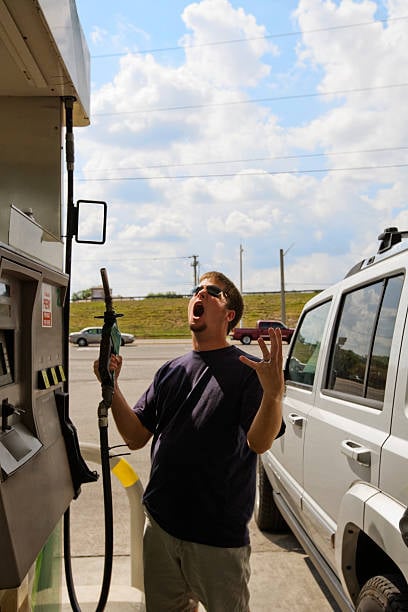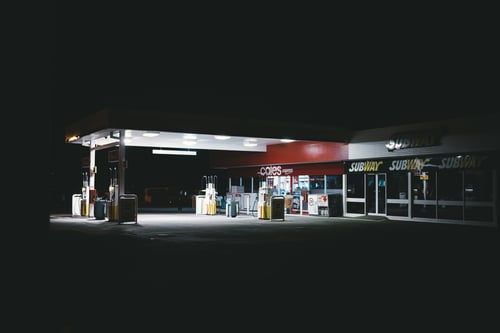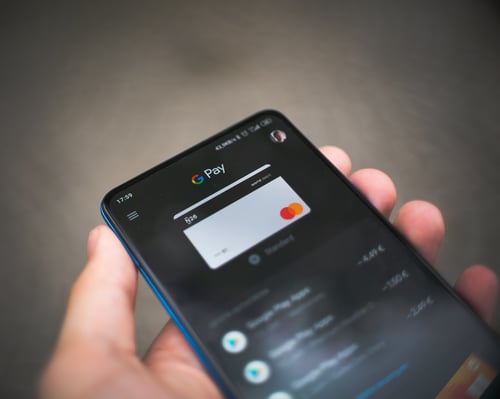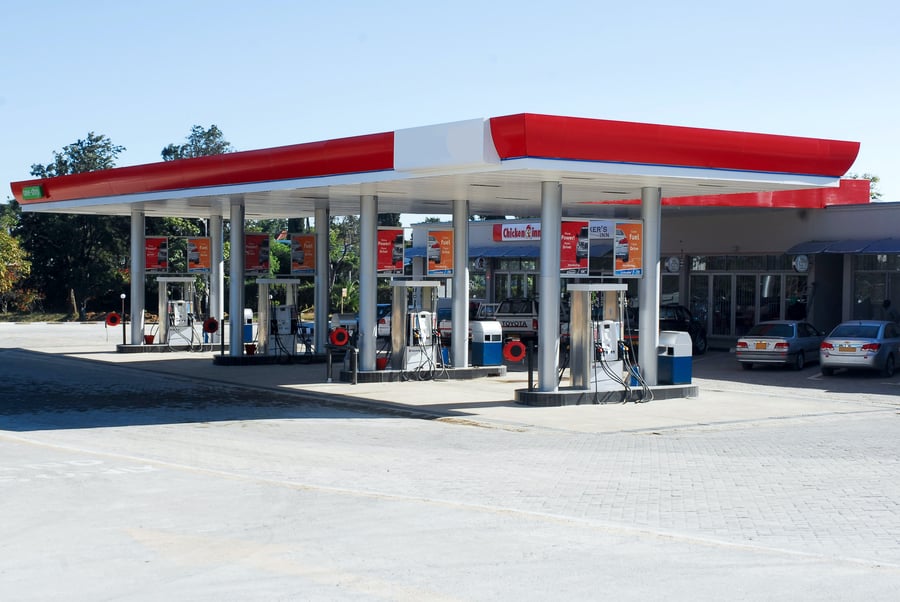
Convenience stores looking to maximize profits are making good use of gas pump marketing options, especially new digital technologies, to drive business inside from the forecourt.
Traditional signage on dispensers and pump nozzles, along with improved gas pump digital screens. can push all-important in-store sales and expand brand experience to a captive audience.
“Getting the gas customer, both four-wheel guests and professional drivers, from the pump into the store presents a huge opportunity for retailers,” Mike Rodgers, senior vice president, chief strategy and information officer for Pilot Flying J Travel Centers in Knoxville, Tenn. told CStore Decisions.
Digital Roots: Gas Station TV Launched in 2005
The digital marketing experience at the gas pump is certainly not a new trend with Gas Station TV launching in 2005.
Gas Station TV started with just five gas stations in Texas, merged with Verifone Pump Media in 2017, and now rebranded as GSTV reaches an estimated 25,000+ locations where they are within reach of 1 in 3 American adults.
“We like to say that our consumer is tied to that screen with an eight-foot rubber hose for about five minutes fueling. So we've got this very, very captive audience - and they're bored - there's really no super magic,” then GSTV CEO David Leider told NPR in an 2014 interview.
To show you how quickly gas pump marketing is moving, look at the moves GSTV has made in the last three years:
- In 2018 launched OCTANE, a “data + analytics solution that enables advertisers to make data-driven decisions as they develop media strategies, target valuable audiences, and measure campaign ROI.
- In 2019 launched IGNITE, a “in-house creative + content studio” that provides advertisers with turnkey creative services from concept storyboarding to executive.
- In 2020 GSTV became the first official media partner of the National Association of Convenience Stores Foundation.
“Our broadcast engages viewers with full sight, sound, and motion video as they fuel their vehicles — an essential waypoint on their consumer journey,” says GSTV.
Advances in Technology Draw Customers into Stores
GSTV is not the only game in town as advances in technology are finding new ways to draw customers into stores.
“Media at the pump—from digital gas-pump television advertising to pump-nozzle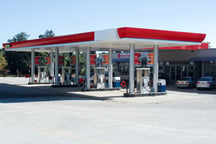 promotions—enable c-stores to gain in-store lift, differentiate their brands, build customer loyalty and even take food orders,” writes Howard Riell in CStore Decisions.
promotions—enable c-stores to gain in-store lift, differentiate their brands, build customer loyalty and even take food orders,” writes Howard Riell in CStore Decisions.
Gilbarco’s Applause TV promotes brand-specific products and services on large digital screens at the gas pump. The company says research shows the gas pump marketing is working with:
- 39 percent increase on the purchase of promoted items.
- Customers can select from a condensed food-ordering menu at the pump and pick up their items inside once they are done filling up their tanks.
Some chains, such as Pilot Flying J, are using new pumps with digital technology built in to attract drivers inside.
Pilot Flying J’s Rodgers said: “The marketing needs to be relevant and timely to the individual guests. At Pilot Flying J, we see significant innovation opportunities in this area.”
Old Reliable: Marketing with Pump Toppers
Riell’s article points out that there is still an audience for more traditional gas pump marketing such as pump toppers and nozzle signs. The Pak-A-Sak chain in Indiana, for example, relies on forecourt marketing based on pump toppers.
Gary Tabor, marketing and sales manager for Jay Petroleum Inc. in Portland, Ind., which operates the Pak-A-Sak stores said: “That’s about the only thing we actually do out at the pumps at this point … I think it’s a great time because it’s a boring situation when you’re out at the pumps. They’ll read anything that can occupy them. That’s why we’re counting on them to read those pump toppers, because they are bored.”
Derek Gaskins, chief marketing officer for Yesway, which operates more than 400 stores in nine states, including the Allsup’s chain, says his stores use music, video and animated graphics to market in the forecourt but that “signage remains the most effective.”
Upgrades in the Forecourt Add Digital Experiences
Expect, however, a move towards more digital experiences, especially as gas stations continue to upgrade their point-of-sale and fuel pump technology. Royal Seven stores in the Atlanta area, for example, moved from the traditional dispensers, the old- fashioned fuel pumps, to touchscreen, 27-inch marketing machines.
Ali Husain, president of Atlanta Petroleum Equipment Co., which provides equipment sales and support to Royal Seven told CStore Decisions: “The newer, large-screen dispensers are quite versatile.
Half of these new dispenser displays run video motion graphics and the other half features still graphics.
“So, it’s promoting products, it’s promoting price of products, it’s promoting service of the store itself,” said Husain.
A bonus of these new digital offerings is the ability to carry local business paid advertising which can create an extra revenue stream for gas stations.
Boost Sales with Digital Signage vs. Static Signage
NCR in a January article made the case for digital signage vs. static signs.
“Some retailers use static signs to advertise in the forecourt, such as on gas pump nozzles and ice boxes. But those looking to deliver more impact should invest in digital and video content; it gets noticed more easily and offers significant potential as a forecourt marketing platform,” said the article.
According to NCR, a recent white paper found:
- Digital signage captures 400 percent more views than static signage.
- 80 percent of brands saw up to a 33 percent increase in additional sales with digital signage.
Forecourt marketing can be especially important to younger generations with CSP Magazine finding that: ”18- to 34-year-olds were more open to influence, with nearly 41 percent somewhat or very likely to go into a store that promoted food on the forecourt, compared with 31.3 percent of all study participants.”
Contact PWM today to find out how our cutting-edge LED signage can help you effectively market your products and services in the forecourt.




